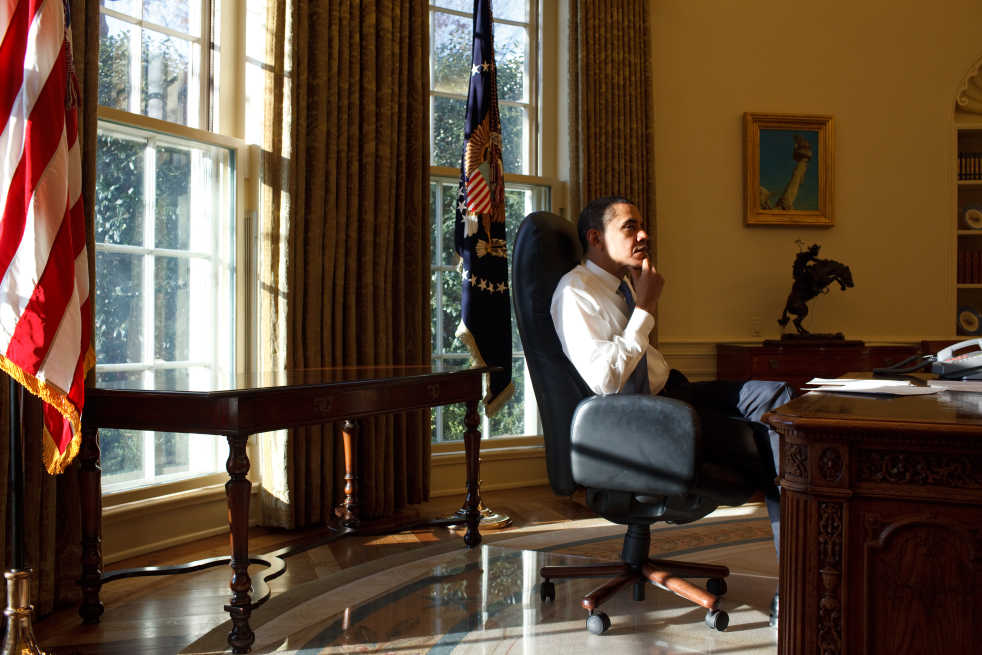Earlier this month, former reality TV star and President Donald Trump promoted via Twitter a gif of himself wrestling and punching someone with the CNN logo edited to cover their face. Perhaps the reality of that sentence being factual should not be as shocking as some might think.
In fact, the hostility towards the media and journalists by no means began with Trump; antagonism of the press by those in power can be dated back to its invention and subsequent use by Martin Luther and his allies to power the Protestant Reformation of the 16th century. Yet, such historical basis will most likely prove tiresome and simultaneously unenlightening for the demographics today which take so much issues with Trump’s behavior.
Instead, it is more prudent to focus on the far more immediate history — that of the Obama Administration, which in many ways has been lionized since Trump’s ascendency. The former president himself has been keeping relatively quiet, perhaps intentionally so to allow him to give more speeches to bankers. His aides, however, have wasted no time in criticizing both Trump and the media for what they see as weakness from both camps. Ironically, much of Obama’s action during his presidency concerning First Amendment matters has left the media in its apparent weakened state.
The 1917 Espionage Act, ostensibly passed in order to limit “interference” with wartime military operations, was invoked seven times by the Obama Administration in order to justify charges against “leakers” — government workers who provide often classified information to journalists. All administrations including Obama’s have used the act only 11 times. And the recent frequent uses have had a decidedly chilling effect on investigative journalism.
One of the most fist-shaking examples concerns the many trials endured by New York Times reporter James Risen and his alleged confidential source, Jeffery Sterling. Risen published “State of War” in 2006, and subsequently faced potential jail time after the government initiated a criminal investigation for alleged disclosure of classified information to Risen during the book’s writing.
Risen was subpoenaed originally in 2008 and again in 2010 after the first motion expired. It was ruled by the US Fourth Circuit Court of Appeals in 2013 that Risen would have to testify and thus reveal his confidential source’ identity. Risen appealed to the Supreme Court, but it was turned down. Throughout this tiresome process, prosecutors from the Justice Department had been gorging themselves on Risen‘s personal information, including records of phone calls, emails and bank transfers.
Even though Risen eventually still refused to testify to the extent desired by prosecutors, the case built was still enough to convict Sterling, a former CIA agent, of nine felonies, some regarding violation of the Espionage Act. And if even such stalwart journalists as Risen cannot protect sources from conviction, is their risk now not simply too great?
Among those that have been charged with crimes relating to the Espionage Act are Pentagon Papers whistleblower Daniel Ellsberg, “Cablegate” whistleblower Chelsea Manning and National Security Agency whistleblower Edward Snowden. Notably, all of the aforementioned provided valuable information to the public about malpractice and deception by the government.
While the Espionage Act might have been the weapon of choice, Obama’s Justice Department employed a number of devious and brazen methods in their crusades against the press. In spring of 2013, two months’ worth of phone records of the Associated Press were seized by the Justice Department, then headed by Attorney General Eric Holder, without any prior notice, preventing the AP from having any opportunity to fight the seizure in court.
“Officials who would normally talk to us, and people we would talk to in the normal course of news-gathering, are already saying to us that they’re a little reluctant to talk to us,” said Gary Pruitt, president and chief executive of the AP. “[They] fear that they will be monitored by the government.”
Indeed, it is quite easy for anyone to connect the dots and come to the same conclusion. With the national security apparatus being what it is, the executive branch of the US government wields power like never before to harass, contain, threaten and/or silence whomever it pleases.
Perhaps most insulting was Obama’s speech early last April during an award ceremony for the Toner Prize for Excellence in Journalism. In it, he described the many difficulties facing journalists in today’s world. Unfortunately, Obama failed to make mention of himself among them.
Now, with the reins in Trump’s hands, panic has set in on a good-sized, very recently complacent block of voters. Regrettably, there was no “#resist”-ing or swells of support for the American Civil Liberties Union when the seeds for Trump to potentially “open up our libel laws” were planted.
